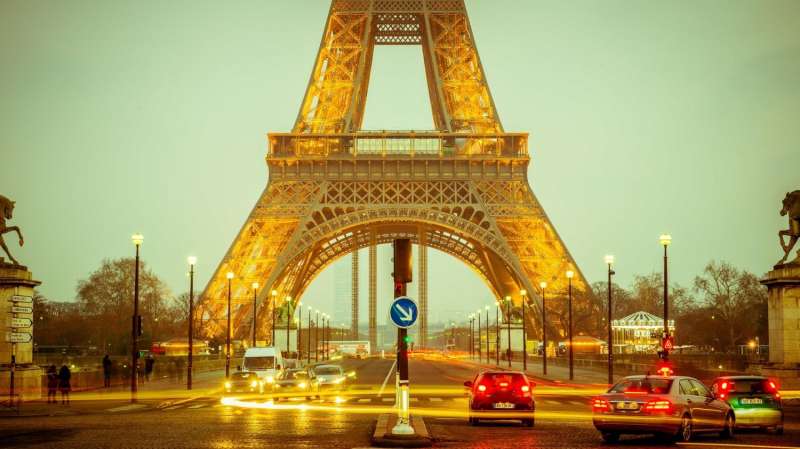Tourism and travel make Paris targets unachievable

In the year 2100, tourists will be flying nine times as many kilometres as in 2015, and the average travel distance for all tourist journeys is set to double over the same period. Aviation, 90 percent of which is tourism, must be severely restricted if we are to meet the climate targets. This conclusion was drawn by Paul Peeters, who will be awarded his PhD for his thesis on this subject at Delft University of Technology (TU Delft, The Netherlands) on Wednesday 15 November.
The increasing CO2 emissions from global tourism will make it impossible to achieve the Paris climate targets. The cause is the enormous growth in the use of aircraft by vacationers and business travelers. By 2100, the world's population is expected to be flying nine times as many kilometres as in 2015, and the average distance covered per journey is set to double. Aviation's share in the CO2 emissions caused by tourism will grow from 50 percent in 2005 to more than 75 percent in 2100, even though by far the most journeys will be made by car. These are the calculations of PhD candidate Paul Peeters, who is also a lector at NHTV Breda University of Applied Sciences. Tourists are currently responsible for around 5 percent of all CO2 emissions, but this proportion is set to rise significantly.
The International Civil Aviation Organisation (ICAO) is responsible for reducing emissions by international aviation. But Peeter's thesis shows that the measures the ICAO announced in 2016 will have a negligible effect. Even a combination of stringent measures, such as a 200 percent tax on tickets, $1,000 per tonne CO2 carbon tax, maximum use of technology, a 90 percent subsidy on renewable biofuels and $200 billion per year investments in high-speed rail will not result in the sustainable development of tourism in terms of the economy and climate. To achieve sustainable development, direct volume measures will be required to keep air travel below its current levels. These could include international agreements on restricting the number of flights at airports. The current debate places too many expectations on the technological development of aviation, which will never be able to compensate for the growth in volume.
According to Peeters, the most important recommendation for policymakers is to develop a policy that directly reduces the volume of air travel, and with it, the growth in the distance traveled. Giving the ICAO responsibility for climate policy for international aviation, as is currently the case, almost guarantees failure, according to Peeters. The ICAO primarily represents the interests of the aviation industry, which makes it unlikely that it will be capable of reducing the worldwide volume of aviation. For this reason, individual countries also need to take responsibility for the emissions from international flights from their airports.
Currently, the U.N. runs the COP23 Climate Change Conference, Bonn, 6th to 17th of November 2017. The research by Peeters provides important inputs for the ongoing climate mitigation negotiations. The first. of course. is to add responsibility for all aviation bunkers to nations. The second is to start thinking about mechanisms and allocation principles to govern global aviation airport or fleet capacity limits. Furthermore, the consequences of both kinds of measures for different parts of the world need to be assessed. Finally, for Dutch policy making, the current policy of maximum expansion of the Dutch mainport Schiphol Airport, seems, based on Peeters's findings, unsustainable for the Dutch mid-term future economic development.
Provided by Delft University of Technology



















